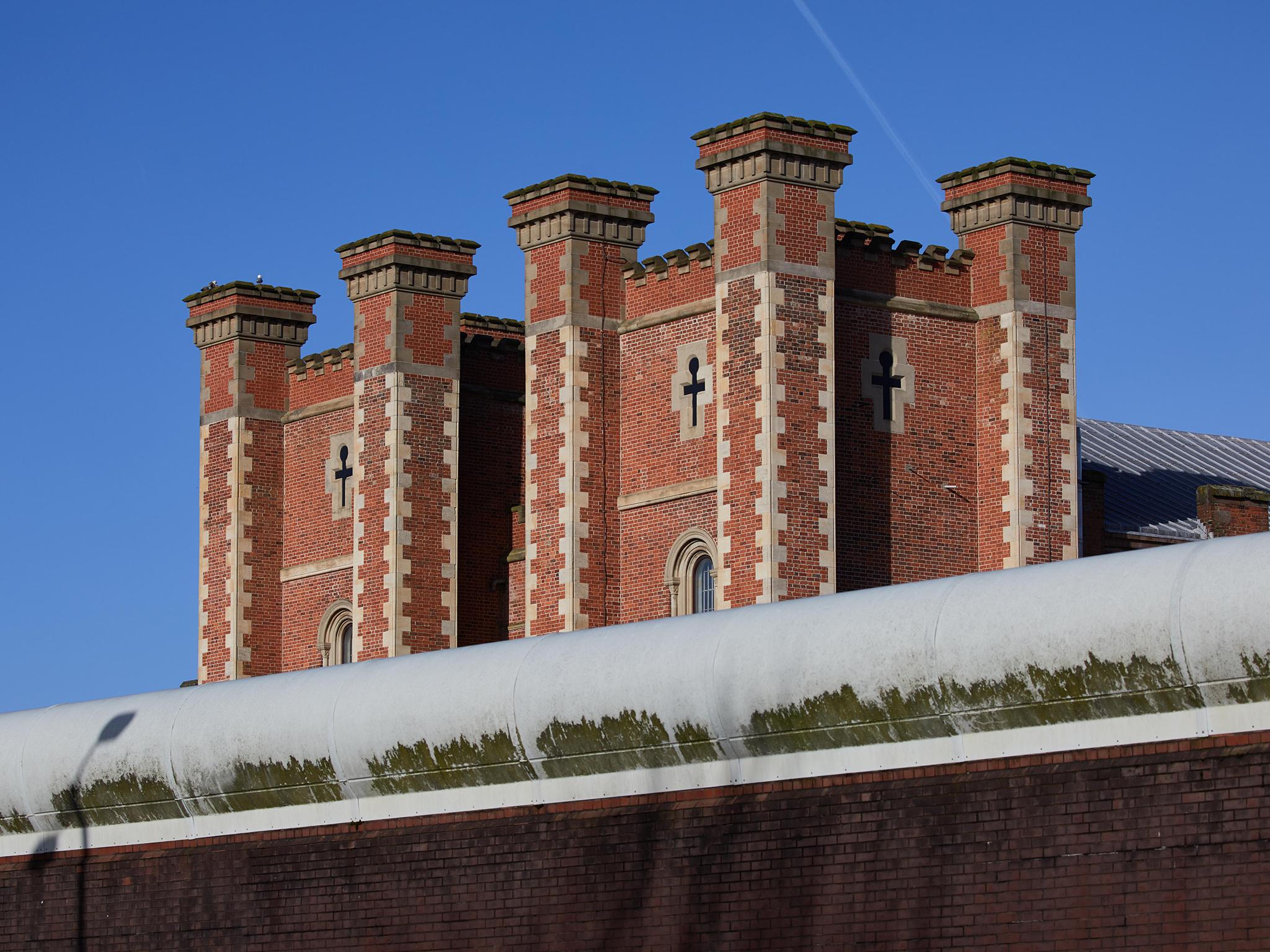Prison with ‘worst conditions ever’ sees dramatic improvement after population slashed by nearly half
Campaigners welcome improvements but raise concern that ‘moving men from one struggling prison to another does not address the issues in the system as a whole; it merely causes pressure to build elsewhere’

A jail that was deemed by prison inspectors to have the “worst conditions ever seen” has made a dramatic improvement after its population was reduced by nearly half.
HMP Liverpool, which was described as having “squalid” living conditions and lacking any safety regime in September 2017, now has “clean and decent” living conditions and has seen improvements in rehabilitation and release planning, according to the Prison Inspectorate, who described it as a “remarkable achievement”.
The improvement comes after a significant reduction in the prison’s population, with the number of inmates having been cut from around 1,150 to between 650 and 700.
Campaigners said the findings were “encouraging”, but pointed out that moving inmates out of the jail will have only placed more pressure on the prisons they were moved to, and said that in order to deliver the lasting impact there needed to be reductions across the whole prison estate.
“The problem is that there are many jails like Liverpool, and moving men from one struggling prison to another does not address the issues in the system as a whole; it merely causes pressure to build elsewhere,” said Frances Crook, chief executive of the Howard League for Penal Reform.
“Sensible steps to reduce the population in prisons across England and Wales would help to deliver the lasting impact we all want to see.”
An analysis of government figures by the Howard League for Penal Reform last year showed three in five men’s prisons were holding more people than they are certified to look after, with more than 18,000 prisoners living in cells designed for fewer people.
In the previous inspectorate report on HMP Liverpool, living conditions were described as “among the worst inspectors had ever seen” – with broken windows, filthy blocked lavatories, graffiti, damp, dirt, rodents and insects – while violence had increased and drugs were readily available.
As well as the reduction in the population, a new governor has since been appointed and an extensive programme of refurbishment was started and health care services changed to a different provider.
The Inspectorate said that the improvements were “not simply” as a result of the population being reduced and resources channelled towards the prison, and that the “real change” had been in the quality of leadership and newfound “culture of care”.
“It was very clear to me that senior managers were operating as a cohesive team in support of enormously energetic and respected leadership, and not as a group of individuals focusing only on their functional responsibilities. I am sure this has been the key to their success so far and will need to be maintained into the future if the work of transforming Liverpool is to be completed,” said Mr Clarke.
But Peter Dawson, director of the Prison Reform Trust, said the report contained “crucial messages” for the justice secretary on the detrimental impact of overcrowding in prisons.
“With 500 fewer prisoners in the prison and dilapidated accommodation taken out of use, the leadership team have been given a fair chance to make a difference,” he said.
“Every prison deserves the same opportunity, and it is only ministers who can deliver it. If they overcrowd Liverpool again in the future, there should be no confusion about who is accountable for the consequences.”
It comes after government figures showed self-harm had surged to a record high, with a prisoner harming themselves every ten minutes across England and Wales – up 22 per cent from the same period in the previous year.
Violence in jails also increased again, with 34,112 assault incidents in the year, up 5 per cent from the 12 months to June 2018. Among these, 10,424 were against members of staff, up 10 per cent.
Phil Copple, HM Prison and Probation Service (HMPPS) director general of prisons, said: “Liverpool has received good support from across the prison service, and plans that were in place at the time of the inspection to tackle violence and reduce self-harm are now having their desired effect. I’m confident that the prison’s progress will continue.”
Subscribe to Independent Premium to bookmark this article
Want to bookmark your favourite articles and stories to read or reference later? Start your Independent Premium subscription today.

Join our commenting forum
Join thought-provoking conversations, follow other Independent readers and see their replies